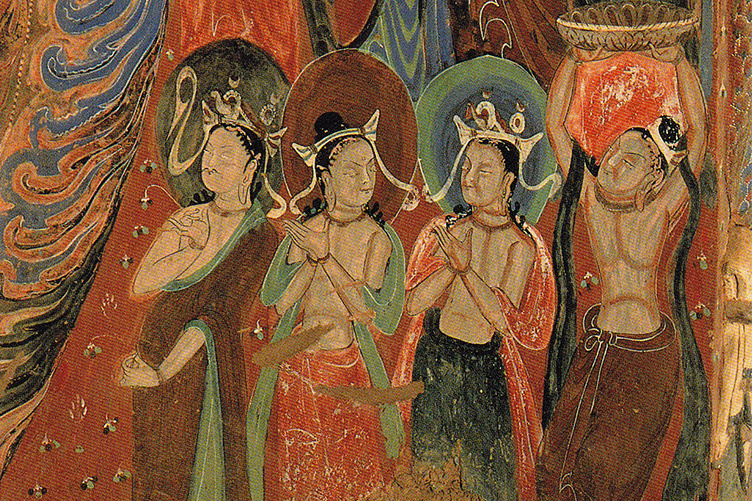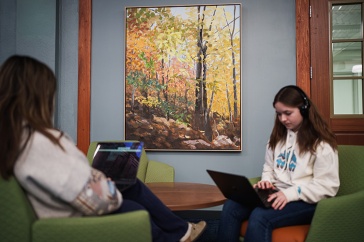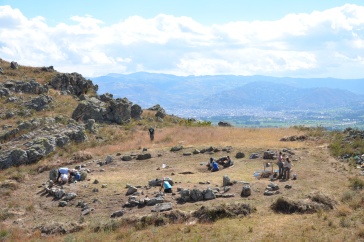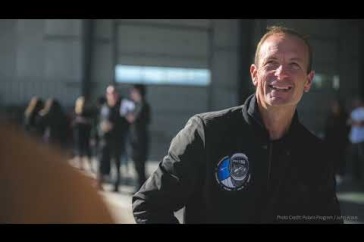
Worshipping Bodhisattva, mural, Cave 285, Wei Dynasty (535-556 A.D.)
UNH will host an exhibition of the caves at Mogao, a top United Nations World Heritage Site located in Dunhuang, China, Nov. 13-17, 2017, in Huddleston Hall. The site is famous for its caves featuring statues and wall paintings spanning 1,000 years of Buddhist art.
The exhibit is free and open to the public Nov. 13 from 4:40-8 p.m.; Nov. 14-16 from 10 a.m. to 8 p.m.; and Nov. 17 from 10 a.m.-noon.
Dunhuang was at the crossroads of trade, cultures, ethnicities and religions along the ancient Silk Road from 300 BCE to about 1400 CE. Approximately 700 caves were hollowed out along a mile-long stretch that housed thousands of square feet of ancient murals and colored Buddhist statues, as well as tens of thousands of ancient scrolls, paintings, religious texts/sutra and government documents. The caves offer a rare glimpse into the lives of the diverse people who traveled along the ancient Silk Road.
The exhibition includes photos, multimedia and original-scale replicas of dozens of murals and the entirety of Cave 285, a painstakingly recreated work of art in its own right. The cave contains images of Chinese and Indian deities and a visualization of a tale of Buddhist redemption known as the "500 Robbers.” The replicas are the work of artists and scholars from the Dunhuang Research Academy, the institution responsible for the conservation, management and research of the World Heritage Site.
Two lectures will accompany the exhibition:
“The Art of Dunhuang” by Huaqing Luo, deputy director of Dunhuang Research Academy, will take place Nov. 13, 2017, from 2-3 p.m. in the Memorial Union Building Theatre II.
"The Murals of Dunhuang” by Yige Wang, co-director of the Confucius Institute at UNH; Brian Chu, UNH professor of art; and Julee Holcombe, UNH associate professor of art; will take place Nov. 16, 2017, from 12:30-1:30 p.m. in the Memorial Union Building’s Granite State Room.
The exhibition is sponsored by the Confucius Institute at UNH and made possible by Hanban (Confucius Institute Headquarters), Dunhuang Research Academy, the UNH College of Liberal Arts, Bryant University and Chengdu University.
-
Written By:
Susan Dumais '88 '02G | College of Liberal Arts
















































